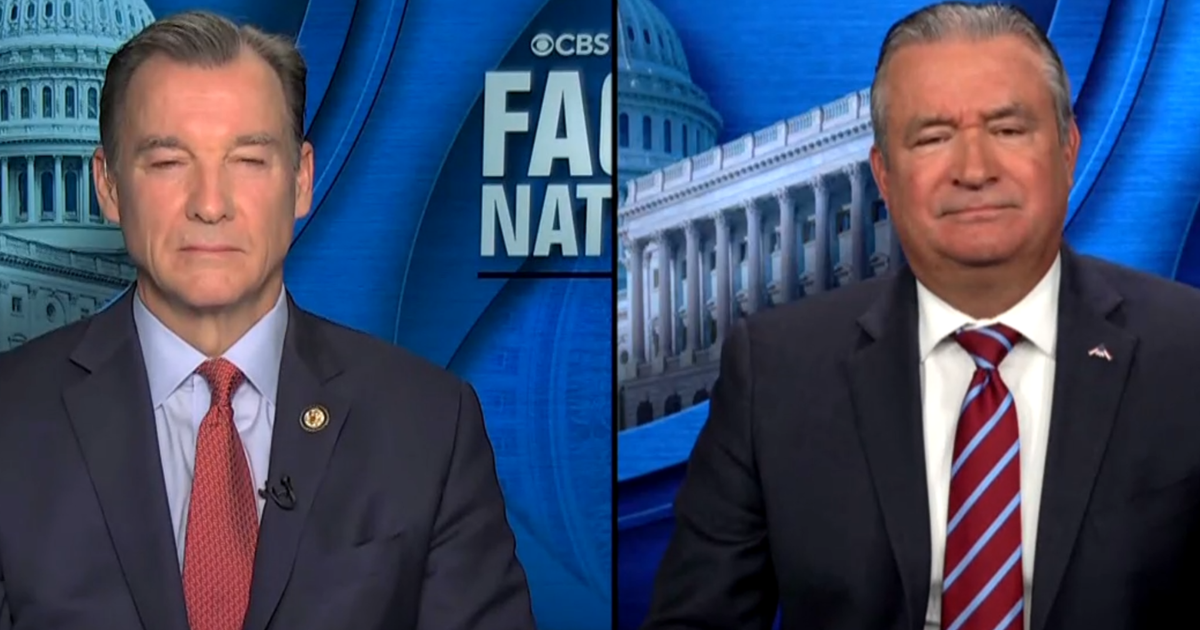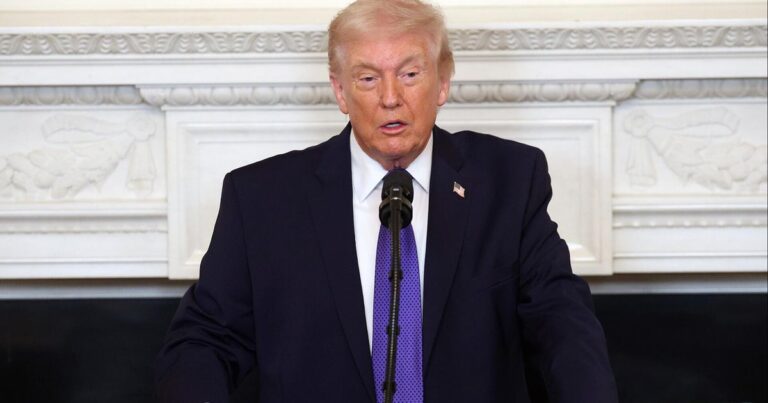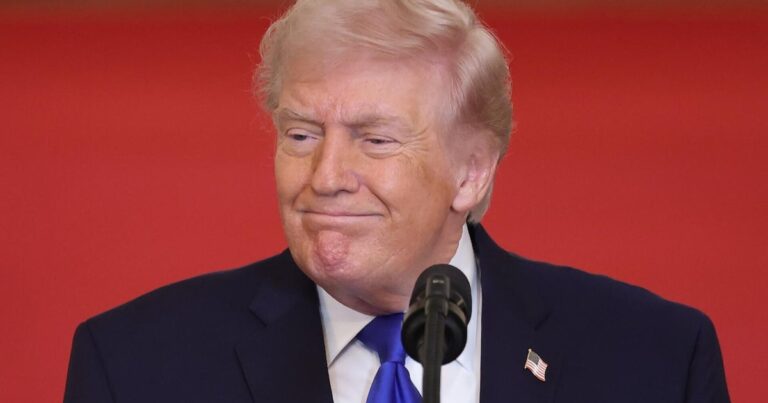
The following is a transcript of the interview with Representatives Tom Suozzi, Democrat of New York, and Don Bacon, Republican of Nebraska, that aired on *Face the Nation with Margaret Brennan* on November 16, 2025.
—
**MARGARET BRENNAN:**
We begin today with two members of the so-called House Problem Solvers Caucus, New York Democrat Tom Suozzi and Nebraska Republican Don Bacon. Good morning. Good to have you here in a bipartisan conversation. You both recognize there’s a problem here.
Congressman Bacon, let me start with you. One out of every five dollars spent in this country goes to health care. We know these Covid-era tax credit subsidies for Obamacare will go away at the end of the month. That’s going to affect about 22 of the 24 million Americans who use that program. What can you do in the next six weeks to make costs go down in January?
**REP. DON BACON:**
Well, we need a temporary extension of these tax credits to keep prices down. Neither Republicans nor Democrats want premiums to skyrocket, but they will if these credits expire with nothing to replace them. That’s why I worked with Tom Suozzi and other members from both parties to find a compromise.
We just want to do a clean extension. Most Republicans don’t want to do that anyway, so we think there need to be some income caps and want to ensure the credits go directly to lowering people’s premiums. Right now, about a third of the money doesn’t make it to premiums, so those are some of the reforms we want.
If we can get those accomplished, then we can extend these tax credits and keep prices lower. But we do need a longer-term fix. The Affordable Care Act is unaffordable, and I think this extension will give us time to work on something bigger and deeper that will help lower costs overall.
I’m proud to work with Tom Suozzi on this, and I appreciate his partnership.
—
**MARGARET BRENNAN:**
Congressman Suozzi, I understand this is a two-year proposed extension of those enhanced premium tax credits and an income cap that phases out for those making between $200,000 to $400,000. When you look at the breakdown, that’s a pretty small portion—less than 10%—of the overall recipients of the tax credits. So what does this accomplish? How does this make it more affordable and fair?
**REP. TOM SUOZZI:**
Well, it helps everybody else who makes under $200,000 dramatically. Affordability is the number one concern for people in America, and health care affordability is right at the top of the list. So we need to do something to extend these premium tax credits.
**MARGARET BRENNAN:**
How much more affordable?
**REP. SUOZZI:**
It’ll save people thousands and thousands of dollars—literally about $1,000 a month for some people. So it’ll be dramatically more affordable. The people who make above $400,000 are a tiny percentage who don’t benefit much from the existing tax credits anyway. Most people are below $200,000. The $200,000 to $400,000 range is a way to taper the credits so there’s no sudden cliff.
**MARGARET BRENNAN:**
And how much Democratic support do you have for this at this point?
**REP. SUOZZI:**
I think Democrats are going to strongly back extending premium tax credits to keep insurance affordable. So we’ve got to come up with this compromise.
**MARGARET BRENNAN:**
Even with these caps?
**REP. SUOZZI:**
Yes, even with the caps. Democrats have always wanted to direct policy toward lower- and middle-income folks—people making under $400,000. Those are bread-and-butter issues we want to address. This affects literally 95% to 99% of the people who benefit from the tax credits.
—
**MARGARET BRENNAN:**
Congressman Bacon—sorry, go ahead.
**REP. BACON:**
I would just say, as Republicans, we push back against someone earning $600,000 getting all these tax credits. For instance, Leader Thune has expressed that concern, and that’s why we included the income cap in our framework.
—
**MARGARET BRENNAN:**
But this is just a tweak with a two-year extension. Republicans haven’t really proposed many alternative Obamacare options. Do you think the entire system needs to be rebooted, and when will we see that plan?
**REP. BACON:**
I do think Republicans and Democrats have to sit down and figure out what we can really do besides just throw more money at the problem. Right now, premiums are rising much faster than inflation, and that’s unsustainable.
We can’t do a Republican-only fix; it won’t pass the Senate on its own. Some folks have proposed Republican-only plans, but that’s not going to work if we want something passed. So we need to work with Democrats and find common ground.
There are some good ideas, like directly subsidizing high-risk individuals and putting them in a separate pool to lower their premiums through subsidies. Then the premiums for healthier people would drop significantly.
There are different concepts we can apply, but it has to be bipartisan. It’s not going to be a Republican-only bill because it wouldn’t pass.
—
**MARGARET BRENNAN:**
Congressman Suozzi, Aetna pulled out of the Obamacare marketplace this year after CVS said it expected to lose as much as $400 million. Other major insurers have pulled out as well. If insurance companies themselves are having problems with Obamacare, do Democrats need to be more open to broader reforms of the Affordable Care Act?
**REP. SUOZZI:**
Yes, we absolutely should be looking at reforms. I want to mend it, not end it. Over the past decade, there have been over 70 attempts—mainly by Republicans, except for reasonable guys like Don Bacon—to repeal Obamacare altogether.
We think repealing it is a terrible idea. But if people want to make it a better system, make health care more affordable, and expand coverage, we should be open to that. That’s what the American people want and what reasonable members of Congress want.
We should work together to expand coverage, lower prices, and make health care more effective and affordable for all.
That’s not going to happen with yelling and screaming. You can’t solve complicated problems in an environment of fear and anger. You need reasonable people, like Don Bacon and other members of the Problem Solvers Caucus, to sit down and talk, listen to each other, and work toward compromise. It’s very hard in this toxic environment.
—
**MARGARET BRENNAN:**
Private health care costs are also going up. On the topic of toxic environments, Congressman Suozzi, Democrats who won elections just a few days ago credited their wins to the affordability issue.
Can you explain why, this past week in the House, Democrats focused so heavily on the Jeffrey Epstein files? Is this a tactic to distract from the failure to achieve health care changes, or is something else going on? Does the Speaker putting it to a vote end this issue?
**REP. SUOZZI:**
I think it’s a combination of factors—people shining their light on the most pressing topic at the time. Jeffrey Epstein is an important issue, and I’ll vote to release his files.
But my priority remains the things the American people care about most: affordability, immigration, taxes, crime, and health care.
That’s what people are focused on, and that’s what Congress should be working on.
—
**MARGARET BRENNAN:**
Congressman Bacon, does the Speaker putting this to a vote end the Epstein issue and get you back to health care? The Speaker said this is all a political exercise, though certainly the victims’ families don’t think so.
**REP. BACON:**
I think the Speaker realizes the train has left the station on this issue. It’s time to rip the Band-Aid off and get it done.
I wish the White House realized that. The more they push back, the worse it looks. The Attorney General said the files would be released, then a month later said no. It’s been a PR blunder from the start.
The Speaker is right—this vote will happen.
Then it goes to the Senate and the president for signature. Meanwhile, our Oversight Committee is releasing thousands of pages of evidence on Epstein—about 3,000 pages just last week.
The Oversight Committee, both Republicans and Democrats, are publishing data and issuing subpoenas. I believe it’s already having an impact.
When it comes to the floor, I’ll vote yes. We want transparency, want to protect victims, but everything else should be open.
—
**MARGARET BRENNAN:**
Congressman Bacon, you also run the Cyber Subcommittee. This past week, AI firm Anthropic said Chinese state-sponsored hackers used their technology to automate break-ins and carry out the first cyber espionage operation largely using AI. It affected about 30 different companies.
What can you tell us about the scope and targets of this attack?
**REP. BACON:**
I can’t share much beyond what was already released, but I can say China has replaced Russia as the most formidable cyber threat.
They have advanced technology and are using AI to find weaknesses in adversaries’ cyber defenses.
What concerns me most is that while China attacks us daily, we have had no commander in charge of Cyber Command for over eight months. The White House fired the Cyber Command commander eight months ago and hasn’t replaced him.
Also, the top two positions at the National Security Agency have been vacant for over eight months. Meanwhile, we have cut funding for CISA—the agency that protects our private sector, businesses, and infrastructure—by about a third.
Our cyber capabilities are going backwards while China is advancing.
This rudderless situation in cyber defense during a time of increasing threats is very concerning, and I’ve been pressing the White House to address this urgently.
—
**MARGARET BRENNAN:**
Well, we will continue following that important story.
Congressmen, thank you for trying to be problem solvers with us today.
*Face the Nation* will be back in a minute. Stay with us.
—
*EDITOR’S NOTE: The enhanced premium tax credits are set to expire at the end of 2025.*
https://www.cbsnews.com/news/tom-suozzi-don-bacon-face-the-nation-transcript-11-16-2025/





